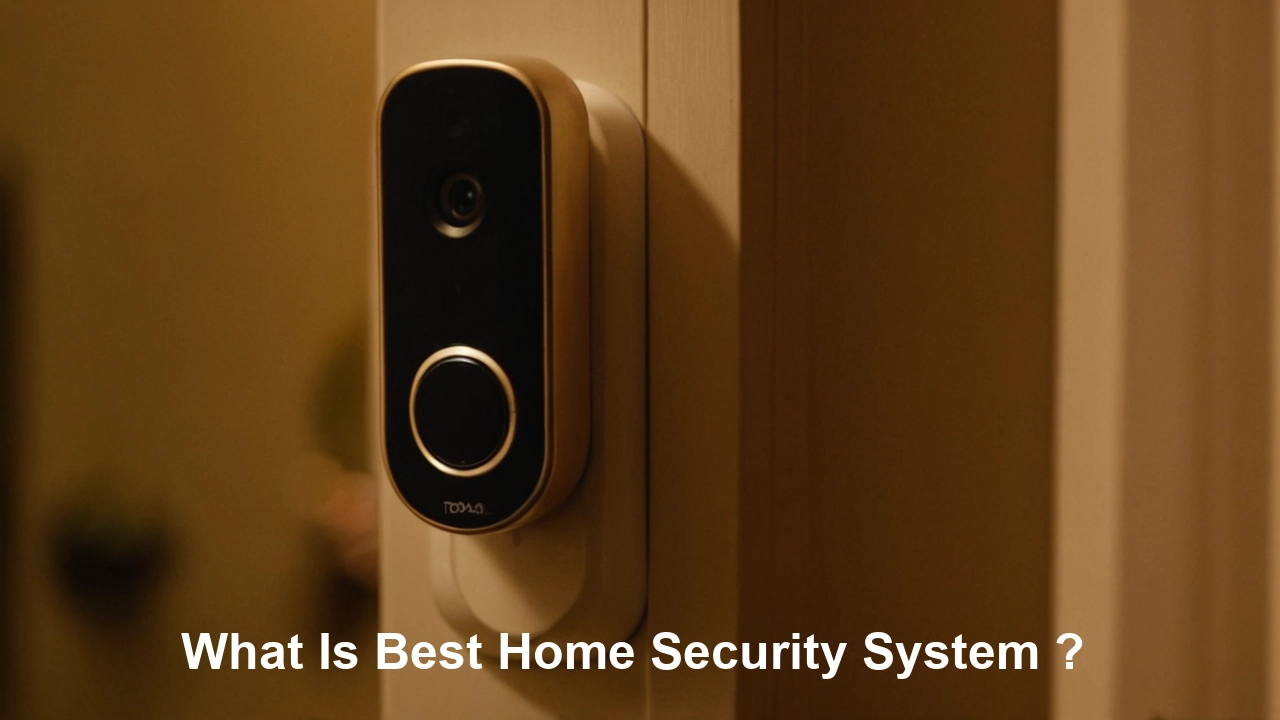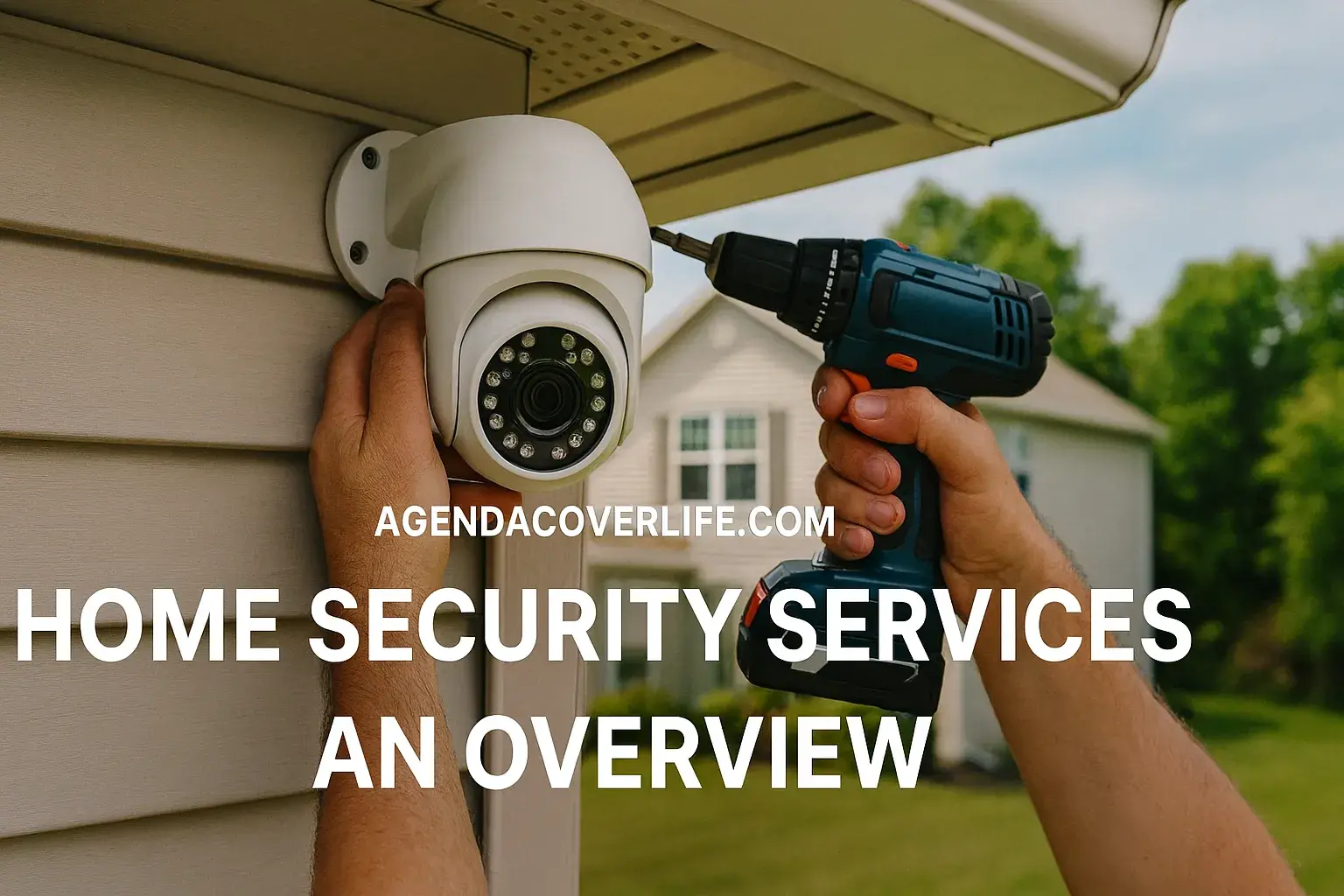Ensuring the security of our houses has evolved in a time when technology is so important in our everyday life. From simple alarms to complete, smart solutions with complex capabilities, home security systems have developed. Finding the best home security system can be a difficult chore with the many choices on the market. This book seeks to simplify the complexity of home security systems so that you may decide how best to protect your house and family.
Understanding Your Needs:
Evaluating your particular requirements comes first in choosing the ideal home security system. Varied homes have varied needs depending on things like location, size, and personal preferences. Think about if your system has to be mostly for fire monitoring, intrusion detection, or both combined. Consider also whether you wish for a system with home automation features, enabling remote control of many facets of your house.
Types of Home Security Systems:
- Conventional Alarm Systems: The basis of house security is these systems. Included are motion detectors, door and window sensors, and a central control panel. An audible alert is set off when a sensor is triggered, and a signal is sent to a monitoring center—which, should an emergency call for it—can send emergency services.
- Wireless home security systems' simplicity of installation and adaptability have helped them to become rather popular. These systems eliminate the need for lots of wiring by connecting sensors to the control panel via radio frequency signals. This qualifies them as perfect for homeowners as well as renters.
- Smart home security systems connect with the Wi-Fi network of your house so you may monitor and operate your security system from a smartphone app. Features like video surveillance, smart doorbell cameras, and home integration with other smart devices abound in these systems.
- Designed for simple installation free of expert help, do-it-yourself (DIY) home security systems Usually wireless and with configurable options, these systems let homeowners add or remove parts as needed.
- Professionally Monitored Systems entail a third-party monitoring center responding to alarms and, when needed, dispatching emergency assistance. Although this service comes with more expenses, it offers continuous monitoring for more peace of mind.
Key Features to Consider:
- Choose if you would rather monitor yourself or professionally. While self-monitoring lets you get alerts and address events on your own, professional monitoring services guarantee a quick reaction to alarms.
- Should video surveillance be a top concern, assess the quality and coverage of the system's cameras. For thorough coverage, look for high-end cameras with wide-angle lenses and night vision.
- Think about whether the security system might interact with other smart home appliances. This could include thermostat changes, lighting controls, and smart door locks, thereby improving the general security and efficiency of your house.
- Managing and watching over your security system on demand depends on a user-friendly smartphone app. Make sure the app gives quick notifications, remote arming and disarming, and simple access to video feeds.
- Installation and Setup: Evaluate whether the installation process fits your degree of comfort. While professionally installed systems may call for the knowledge of a technician, DIY systems are sometimes created for simple setups.
- Customer Support and Reputation: Look at the provider of the home security system's standing. Review client comments, look for certificates, and assess the degree of client service received. Any problem needs quick resolution depending on a consistent and responsive support system.
Cost Considerations:
A home security system's cost can vary greatly depending on the kind of system, monitoring services, and extra capabilities. Although choosing the most reasonably priced solution is enticing, one should take long-term value and degree of protection given into account. Although some systems have fewer initial expenses, they may demand continuous membership payments for monitoring services.
Conclusion:
Selecting the ideal home security system requires careful thought of your particular requirements, tastes, and financial situation. Choose a classic alarm system, a wireless option, or a complete smart home security system depending on your needs and give features top importance. Remember that protecting your property is only one aspect of the objective; another is giving you and your family peace of mind. Investing time in study and knowing the possibilities will help you to make a wise choice to establish a more safe and secure home surroundings.
Call (888) 805-5456 for Smart Home Security System now!
FAQ's
Q. What factors should I consider when choosing the best home security system?
A. When selecting a home security system, consider factors such as your specific security needs, the size and layout of your home, the reliability of the system, monitoring options, customer reviews, and the level of customer support provided by the security company.
Q. Are wireless or wired home security systems better?
A. Both wireless and wired home security systems have their advantages. Wireless systems are often easier to install and more flexible, while wired systems may offer greater reliability and don't rely on batteries. The best choice depends on your preferences and the specific requirements of your home.
Q. What features should I look for in a home security system?
A. Look for features such as motion detectors, door/window sensors, surveillance cameras, smart home integration, remote monitoring capabilities, and professional monitoring services. The best home security system is one that aligns with your security goals and integrates seamlessly into your lifestyle.
Q. Are DIY home security systems as effective as professionally installed ones?
A. DIY (Do It Yourself) home security systems have become increasingly sophisticated and can be very effective. They are often easier to install and more budget-friendly. However, professionally installed systems may offer more advanced features and ensure proper setup, potentially providing a higher level of security.
Q. How important is professional monitoring for a home security system?
A. Professional monitoring is crucial for a home security system, especially if you want a prompt response to emergencies. With professional monitoring, trained personnel can quickly assess and respond to alerts, contacting law enforcement or emergency services when necessary. It adds an extra layer of protection to your home.





